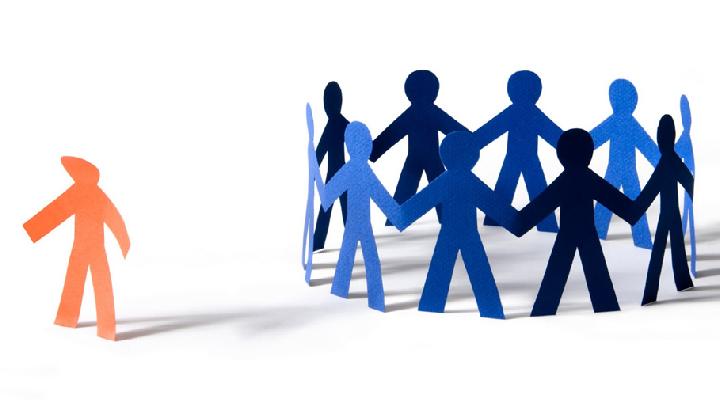One of the main problems of the 21st century is “otherization.” Almost every global, regional, and national conflict is rooted in internalization and externalization in a world full of seemingly unsolvable and overwhelming challenges. Territorial disputes, sectarian violence, military conflicts, the spread of various diseases, hunger and malnutrition of some people worldwide, and even climate change arise from this epidemic problem. In the following, we will explain more about otherization and its consequences.
What is meant by othering?
This phenomenon is often considered a kind of incompatibility with the norms of a social group. Othering affects people’s view of people who are in the minority and how they treat them. This problem manifests in other ways, such as attributing negative characteristics to people or groups that are different from others.
Internalizing and alienating people is related to human communication and relationships. Statements like “They are not like me” or “He is not one of us” often come from such thoughts. Othering is a way to negate the individual humanity of others, and the result is that everyone who belongs to the category of outsiders is considered less worthy of respect and dignity than others.
Signs of otherization
Introversion has signs that if you see them in yourself or those around you, you should think of a way to solve this problem:
- You attribute positive traits to people like you and negative characteristics to those different from you.
- They believe people different from you or your social group are a threat.
- Feel distrust and discomfort in dealing with people or social groups, even if you do not know them.
- They are not interacting with certain people because of their differences with you or your social group.
- The idea is that people outside your social group are not as intelligent, professional, or unique as you and your group members.
- Consider people in terms of their relationship to particular social groups, regardless of their characteristics.
This phenomenon happens unconsciously and sometimes consciously, and people are prejudiced based on what they consider the norm. Although alienation often happens openly, sometimes it becomes an invisible barrier that prevents people who are considered outsiders from accessing opportunities and being accepted in society.
Types of introversion and non-introversion
Othering is done based on various features, some of the most important of which are:
- Age;
- disability and disability;
- Ethnicity, nationality, and race;
- gender and sexual Identity;
- Language;
- type of employment;
- political affiliations;
- Religion;
- skin color;
- Economic and social situation.
Examples of otherization
Ethnic violence, like in 2016 in Karabagh, or conflicts caused by religious differences are the most obvious examples of internalization and alienation. Some other examples of otherization are:
- Fierce and passionate competitions among fans of sports teams;
- What happens in some schools or universities, which brings students together according to class groups or entering different years;
- Introverting and non-introverting based on the city of residence, such as Tehranis and non-Tehranis;
- Differentiating people based on their profession is like saying, “All accountants are the same, aren’t they?”.
These internalizations and externalizations can affect the attitudes and relationships of people in society with each other.
Other reasons

The reasons for alienation vary from situation to situation. How and when people internalize and externalize often depends on how apparent their differences are in a particular context. If these differences are considered a threat, it is more likely that others will victimize people outside the group. Some factors play a significant role in forming this phenomenon, and we will examine each below.
1. Human evolution
The tendency to be introverted and extroverted may be a way to increase group cohesion and minimize outsider threats. In ancient times, people cared about forming groups close to each other, and the borders of allies and enemies of each land were clearly defined. Accordingly, helping close people, such as family members with similar genes, was crucial for survival.
2. Ingroup bias
This issue, or ingroup favoritism, is a psychological tendency to prefer group members to people outside it. According to researchers, factors such as resource competition can connect and unite people. Other factors, such as personal and social Identity, also play a role in this partiality.
Ingroup bias often affects how we evaluate others, treat them, and share resources.
3. Prejudice against out-group members
People who have experienced otherization tend to understand all their group members’ differences and variations while believing that people outside the group are all the same.
An example of this is when you think that the members of your friend group are all special and unique and that everyone else is boring, restless, and the same. This may not be the case, and others who are not in your group are also unique and attractive.
4. social Identity
According to theories related to social Identity, membership in a group may play a significant role in the behavior and Identity of the people of that group. When people see themselves as belonging to a particular social group, they tend to discriminate against or even treat those not with hostility.
5. Ignorance
Many times, people consider people who they don’t know as outsiders. Personal ignorance and lack of contact with people may cause incorrect assumptions to be formed about them. As a result, we consider them to be very different people from us or even inferior to us. This ignorance comes from other issues, the most important of which are:
- inadequate training;
- personal prejudices;
- Culture;
- self-righteousness;
- economic instability;
- social influences;
- common beliefs;
- Misrepresentations in the media.
Othering stems mainly from our natural tendency to categorize people based on similarities and differences. The factors that determine the boundaries of groups may sometimes be found in physical characteristics such as race and gender or based on geography and distance and proximity of people from each other. However, often resorting to such differences for internalization and alienation is entirely conscious.
6. Justifying past misbehavior
You may feel shame or guilt towards someone you mistreated in the past. To admit that you are a good person despite misbehaving with others, you may resort to othering to show your actions as inhuman. This method helps you to distance yourself from him. As a result, the possibility of feeling bad about yourself is reduced.
What are the consequences of introspection and non-introversion?

Being a social group member often has benefits, but sometimes it can come with costs. The positive aspect of belonging to a group is that it gives people friendship, support, care, communication, and Identity. In a negative sense, it may cause alienation, prejudice, and conflict with people outside the group. These issues tremendously affect individuals, social groups, and societies.
1. Exclusion and increasing inequalities
Introversion and alienation may lead to the exclusion and marginalization of people who are not members of dominant social groups. Minorities often face inequality in the fields of economy, housing, employment, justice, education, and health. These issues ultimately contribute to discrimination, and problems such as racism, gender discrimination, and fear of trans people (transphobia) emerge.
Othering damages personal relationships by creating distance between people who are not very different from each other. Internalizing and alienating the unique characteristics of some people is considered the cause of existing inequalities and helps to form negative attitudes of people toward each other.
2. Systematic discrimination
Othering at the social level may lead to structural and even political discrimination. As a result, some people are considered different or less worthy. This phenomenon also shows itself in politics; Dictator leaders incite fear and resentment to get people to support their policies. Minorities are considered enemies, and leaders justify their inhumane policies toward them.
This division makes people believe that acceptance and tolerance are not possible. When these differences seem too significant and impossible, they become internalized in people. Making this issue a part of individual Identity makes the societal rifts seem irreparable.
The result is that structural and systematic discrimination and favoritism emerge, which is both harmful and causes the most damage to minority groups.
How to deal with othering?
1. Pay attention to each person
When dealing with those not members of your social group, please pay attention to each of them and their characteristics. Don’t forget that everyone has their own stories, personal experiences, thoughts, emotions, and complex motivations, and to listen to their stories, you should avoid misplaced judgments and internalizing and externalizing.
2. Recognize unconscious biases
Being aware of othering is a crucial way to overcome it. Unconscious biases and beliefs about different social groups are our unconscious biases. Sometimes we don’t notice these biases, affecting our conscious attitudes. Being more aware of these biases helps us to be less alienated. This issue requires the study of different cultures and beliefs.
3. Don’t forget that diversity has essential benefits
Spending time with and getting to know those different from you will help you grow. This lets you see people outside your group and discover new experiences, ideas, cultures, and beliefs.
4. Be careful what you say
The terms we often use to describe different social groups may strengthen social bonds. However, sometimes the use of these expressions leads to introspection.
5. Do not forget that the Identity of people is multidimensional
People can become members of different groups based on gender, race, religion, nationality, and issues like that. The intersection of these identities plays a role in forming each person’s experiences.
6. Expand your social circle
People tend to look for people who are similar to them, but it is also helpful to seek out friends from different backgrounds. This way, you get to know others and the world around you more.
7. Talk about discrimination
One way to combat discriminatory behavior is to speak up whenever you see it. Not talking about othering causes these behaviors to become normal and acceptable.
you say
Introversion and alienation can bring a society to the point of collapse. What other examples of this 21st-century problem do you know? How do you think this phenomenon can be dealt with?



